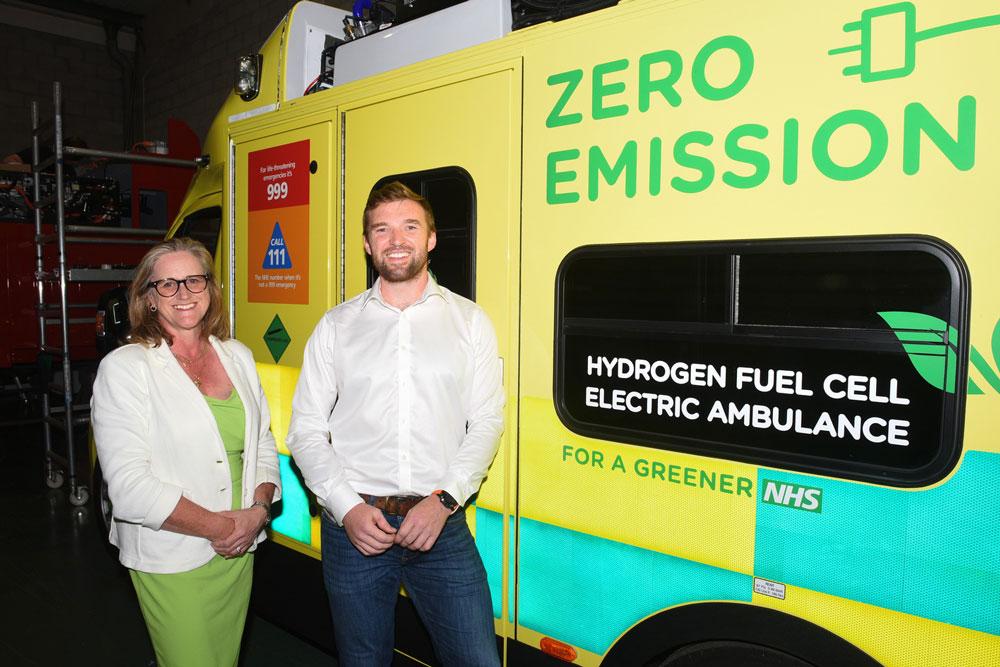If the government is going to achieve its target of reaching net zero carbon emissions by 2050, hydrogen will be needed. Rob Dale explains how the Hydrogen Strategy Now campaign has been established to spur the government into action
The UK urgently needs a hydrogen strategy. That’s what the Hydrogen Strategy Now campaign is all about.
The UK has the unique opportunity to become a world-leader in hydrogen, but without a strategy we are at risk of missing the boat. The Hydrogen Strategy Now campaign has been established by a group of leading businesses operating in the UK, united in the belief that the Government must establish a UK-wide hydrogen strategy. Developing a clear, strategic plan such as this will unlock significant private investment in hydrogen technologies and manufacturing across the country, driving growth and creating green jobs.
The economic recovery from the Covid crisis must be green, clean, and create jobs. Hydrogen can play a key role in this recovery. In the longer term, if the government is going to achieve its legally required target of reaching Net Zero carbon emissions by 2050, hydrogen will be needed to get there.
A voice lobbying government
Our campaign has written to the Chancellor to urge him to commit to establishing a UK-wide hydrogen strategy at July’s expected fiscal event, which will set out in more detail the Government’s plans for economic recovery from the Covid-crisis. In just a few short weeks, nearly fifty MPs and Peers, of all parties, have added their support to this campaign. It has been raised in Parliament on multiple occasions, and has secured the endorsement of council leaders, leading academics, and the General Secretaries of four major UK trade unions - UNISON, Unite, GMB, and Prospect.
As the General Secretaries of these trade unions stated in their letter: “We fully support the need to become decarbonised in a manner that takes significant steps towards our Net Zero targets, whilst at the same time sustaining and creating high quality jobs, and supporting economic growth in all parts of the country. We believe hydrogen is key to meeting these objectives. It will support the decarbonisation of heat and the generation of clean power. It is also critical not only because it will enable energy to decarbonise, but also because it will enable transport and heavy industry to do so too, with the multiple benefits this will bring.”
The UK has the potential to become a global leader in renewable and low-carbon hydrogen technology, but we must move fast to realise this opportunity and achieve the maximum economic benefit. It will require ambitious collaboration between Government and industry.
The UK has a huge number of natural advantages when it comes to hydrogen energy – we have a robust energy infrastructure, and we have a highly-skilled manufacturing base well-suited to a cutting-edge new technology like hydrogen.
The Local Government Association has already said there could be over 1 million green new jobs created by 2050, and it is clear that hydrogen is going to play an essential role in the world’s future, low-carbon economy. The increasingly bold steps being taken by other nations underlines the need for the UK to bring forward urgent measures to establish a hydrogen strategy and unlock investment and innovation.
What are the benefits?
The benefits of having a strong hydrogen economy are clear – it will drastically reduce carbon emissions, improve air quality, and create new, green jobs across the country. It can help usher in a new era of clean transport, through hydrogen buses, trains, lorries and even ships and aeroplanes, as well as clean heating. It will also provide a huge boost to manufacturing in this country and give the UK the opportunity to lead the world in an exciting renewable and low-carbon technology.
A UK-wide hydrogen economy will create and sustain hundreds of thousands of high-skilled, green jobs, in all parts of the country. It will drive progress to Net Zero and improve air quality in towns and cities. It will secure private investment into the UK, and unlock export opportunities for our products and skills. And it will increase our energy security by making fuller use of the UK’s natural resources. This is not just a vision for the future, it is a reality for today. Big vehicles across the world are already being powered by hydrogen.
As we look to the post-COVID recovery, we must focus on creating high-skilled, green jobs, in sectors that will be critical to the future economy, such as low-carbon energy, transport and heavy industry. The Committee for Climate Change has made it clear that the UK will not meet its Net Zero targets without significant investment in the hydrogen economy.
The global hydrogen economy is estimated to be worth $2.5 trillion by 2050, supporting 30 million jobs. Other nations, such as Australia, Japan, South Korea, Canada, and China have already set ambitious strategies for growing their hydrogen economies. Just last week, Germany joined this list with their own €9 billion hydrogen strategy. The European Commission is also creating an EU hydrogen strategy, which includes plans for multi-billion euro investment in hydrogen projects, and schemes to boost sales of hydrogen electric vehicles.
It is now clear that hydrogen is going to play an essential role in the world’s future, low-carbon economy. The increasingly bold steps being taken by other nations underlines the need for the UK to bring forward urgent measures to establish a hydrogen strategy and unlock investment and innovation. We should not risk falling behind other nations in developing our hydrogen industry.
As a collective, the campaign partners of the Hydrogen Strategy Now campaign employ a combined total of around 100,000 people in the UK, and have a value of £100bn. They stand ready to invest up to £1.5bn in hydrogen projects and create thousands of jobs across the country.
The UK’s Net Zero targets cannot be met through hydrogen alone. It will need a complementary approach across different sectors. But introducing a UK-wide hydrogen strategy would be a good place to start.
As Baroness Brown, vice-chair of the influential Committee on Climate Change, has said: "The UK missed the boat on wind technology and missed the boat on batteries. We can't afford to miss the boat on hydrogen.”






